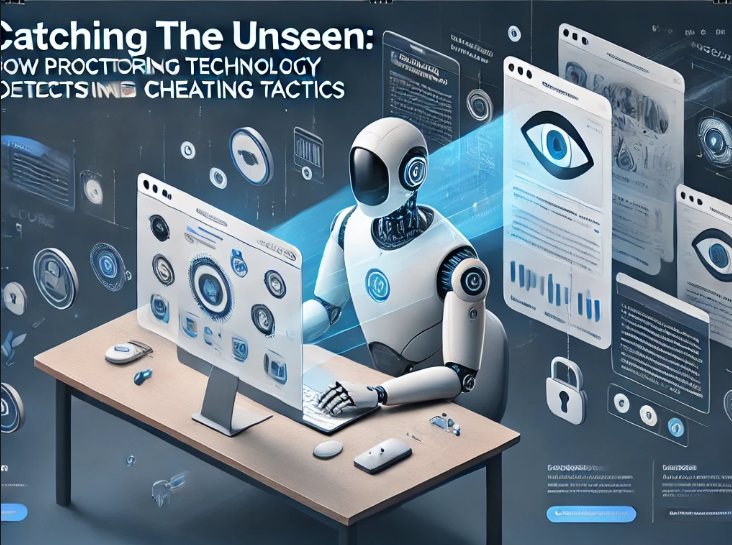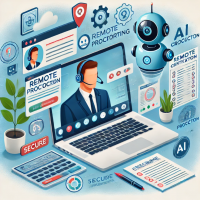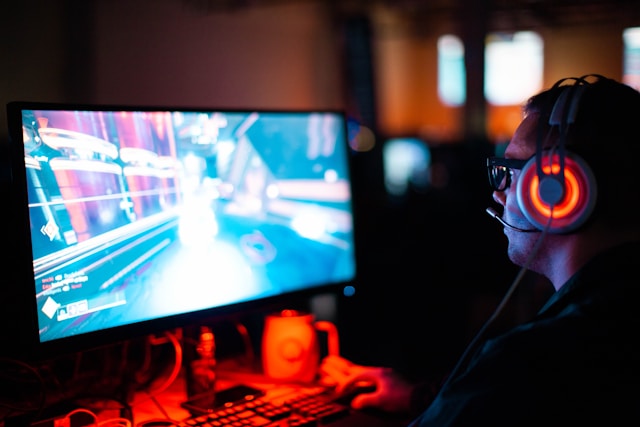Beyond the Webcam: Advanced Techniques for Spotting Exam Cheating

Strong 8k brings an ultra-HD IPTV experience to your living room and your pocket.
Introduction
We are living in an age where exams are no longer confined to physical classrooms. Digital assessments have become the norm, offering flexibility and convenience. However, with these advancements come challenges, especially in maintaining exam integrity. Cheating has evolved, and so have the tools to combat it. Enter advanced proctoring techniques that go far beyond the capabilities of a simple webcam.
In this article, we will dive into how modern technologies such as automated proctoring, secure browser environments, and AI innovations are changing the way we ensure fairness in online exams. Let's explore the future of proctoring and how it's tackling the unseen.
The Evolution of Exam Proctoring
Proctors watched exams the old-fashioned way; they just depended on their eyes. That is until the traditional model became passé with online assessments. Today, enter the digital assessment and the need for innovation such as automated proctoring.
Current-day proctoring tools now rely on artificial intelligence and machine learning to guarantee fairness in its assessment mechanisms. These technologies monitor candidates' actions, find irregularities, and flag suspicious activities, making it almost impossible for a cheating candidate to escape the notice of the computer.
Techniques to Detect Cheating Beyond the Webcam
AI-Powered Behavioral Analytics
Do you know how some people have a "tell" when they are nervous or distracted? AI works in much the same way, analyzing behavioral patterns to identify anomalies. For example, if a candidate constantly looks away from the screen or has erratic mouse movements, the system flags these behaviors for review.
The AI Agent plays the most important part here, it has real-time analysis and minimizes false positives, focusing on the behavior rather than just the visual, this method catches what may be missed with a webcam.
Using a Safe Browsing Environment
Think of a locked-down exam hall: it doesn't allow candidates to open unauthorized resources, disables the copy-paste functionality, and restricts screen sharing. This will ensure that candidates cannot open other tabs or software during the test.
Such functions of real-time monitoring and instant restriction enforcement make secure browsers the foundation of contemporary proctoring, creating a first line of defense against prevalent digital cheating tactics.
Record and review systems
Imagine a security camera that captures every moment within an exam. That basically is what recording and reviewing systems do. They capture the entire session so that proctors can analyze flagged activities much later in the process. It is beneficial for everything to be transparent while also giving concrete evidence in disputes.
Additionally, this combined with ID verification will ensure the right person is sitting and taking the test as well, giving an added layer of security.
Improving Proctoring with ID Verification and AI Agent
The biggest challenge in online exams is the verification of the candidate's identity. ID verification deals with this issue by requiring candidates to confirm their identity before starting the test. This reduces the risk of impersonation.
The AI Agent further enhances this process by continually monitoring for inconsistencies, ensuring the verified individual is present throughout the exam. Together, these technologies create a robust framework for secure assessments.
Benefits of Advanced Proctoring for Institutions and Candidates
For institutions, advanced proctoring ensures the integrity of their exams, reduces administrative burdens, and builds trust in their certification programs. It's particularly important for digital assessments like tech certifications, where credibility is paramount.
For the candidates, these tools create a fair and stress-free environment. Knowing that everyone is being monitored equally reduces anxiety and fosters confidence in the system.
Overcoming Challenges in Implementing Proctoring Technology
While the benefits are undeniable, implementing proctoring technology isn't without its challenges. Privacy concerns often top the list. Institutions must strike a balance between monitoring candidates and respecting their privacy.
Accessibility is another issue. Proctoring tools must be accessible and flexible to accommodate different needs to ensure a fair playing field.
The Future of Exam Proctoring
The future of proctoring is bright, with innovations such as biometric verification and more advanced AI tools on the horizon. These will make online exams even more secure, seamless, and trustworthy.
And with this forward step, the fact is crystal clear: a new landscape will emerge in the form of technology integrated with ethics when it comes to digital assessments.
Conclusion
Advanced techniques in proctoring are making ways for how we can have fair online examinations. Behavioral analytics to secure browsers, and AI tools ensure that cheating becomes a word of the past.
Institutions must adopt these technologies to build trust and credibility. For, after all, the future of education depends on fairness, integrity, and innovation.
Note: IndiBlogHub features both user-submitted and editorial content. We do not verify third-party contributions. Read our Disclaimer and Privacy Policyfor details.







